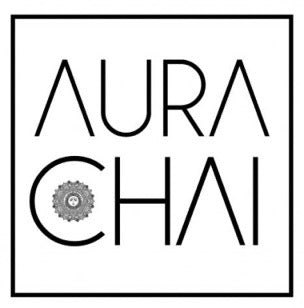Whether you’re vegan, lactose intolerant or just plain curious, there are now lots of delicious alternatives to cow’s milk on the market. The taste and texture of a chai latte can be massively influenced by the type of milk you choose to accompany the spice – so here we offer a run down of some of our favourite types and explain which to choose for a creamy, dreamy chai.
Whole cow’s milk
If you’re not vegan or lactose intolerant whole cow’s milk is perhaps the most popular and traditional accompaniment to masala chai. Its higher fat content provides the perfect level of creaminess to balance out the soft yet spicy aroma of the fragrant masala chai mix. Masala chai is often traditionally made with full cream or sweet condensed milk – so this is an authentic and tasty way to enjoy a sweet, spicy chai.
Soy milk
Soy is thick and tasty – a popular alternative to dairy. Along with almond milk this is one of the most popular dairy-free ways to enjoy masala chai. Unsweetened versions are healthiest – but a sweetened vanilla flavoured soy works really well – particularly for indulgent iced chai lattes!
Almond milk
Almond milk is a lightly fragrant, softly flavoured plant-based alternative. Its slightly sweet, nutty flavour perfectly complements the stronger spiciness of our delicious whole spice chai blend. It is thinner in texture than cow’s and soy milk – so it’s best reserved for hot chai. It’s also low in fat and is a good source of powerful antioxidant vitamin E.
Oat milk
This relatively new kid on the block is increasing in popularity as an accompaniment for coffee and tea – so it’s great to hear that it’s also perfect for a warming cup of masala chai! Oats have a host of health benefits – including heart friendly nutrients, soluble fibre and vitamin A, B, C D and E. Just one serving of oat milk contains a whopping 10 vitamins and 15 minerals including calcium and magnesium making it an abundant source of nutrients and nutritionally powerful alternative to dairy and other plant-based alternatives.
Hazelnut milk
Featuring the delicious nutty flavour of roasted hazelnuts, this versatile type of plant-based mylk is low in fat and high in B vitamins, which are essential for cell production, circulation and hormone regulation. Folic acid, vitamin E and omega-3 essential fatty acids provide a host of extra welcome health benefits. This isn’t a great choice if you are looking for the creamy texture of dairy – instead it has a taste all of its own that beautifully complements the boldness of whole, pure chai spices.
Macadamia milk
Packed with healthy fats, chunky, creamy macadamias make a beautifully thick and tasty dairy-free milk. Featuring a powerful blend of vitamins, minerals, nutrients and antioxidants, macadamia milk has the best of both worlds – soft creamy texture and sweet nutty flavour plus fabulous feel-good factor! It also support glowing skin and healthy hair and nails thanks to vitamins A and E and essential fatty acids.
Cashew milk
Cashew milk is incredibly similar to almond milk in flavour and texture – and its nutrient profile is comparable too, featuring calcium and vitamins D, A and E in significant quantities. It is sweeter and less nutty than almond alternatives – so it’s perfect for anyone who finds the taste of almond milk overpowering. Homemade versions are richer, thicker and more nutrient-dense – and can be easy to put together yourself for a tasty, healthy treat.
Coconut milk
The soft, sweet flavour of coconut is fabulous with masala chai. Coconut is a recognised super food – and coconut milk is jam-packed with an impressive variety of vitamins and nutrients. Extracted from the meat of the coconut, this creamy milk is rich in protein, fatty acids, iron, magnesium and potassium. Added antibacterial and antimicrobial properties plus nourishing and hydrating electrolytes aid digestion and promote healthy gut flora. Coconut works really well with our turmeric-powered Golden Chai recipe – try it here!

